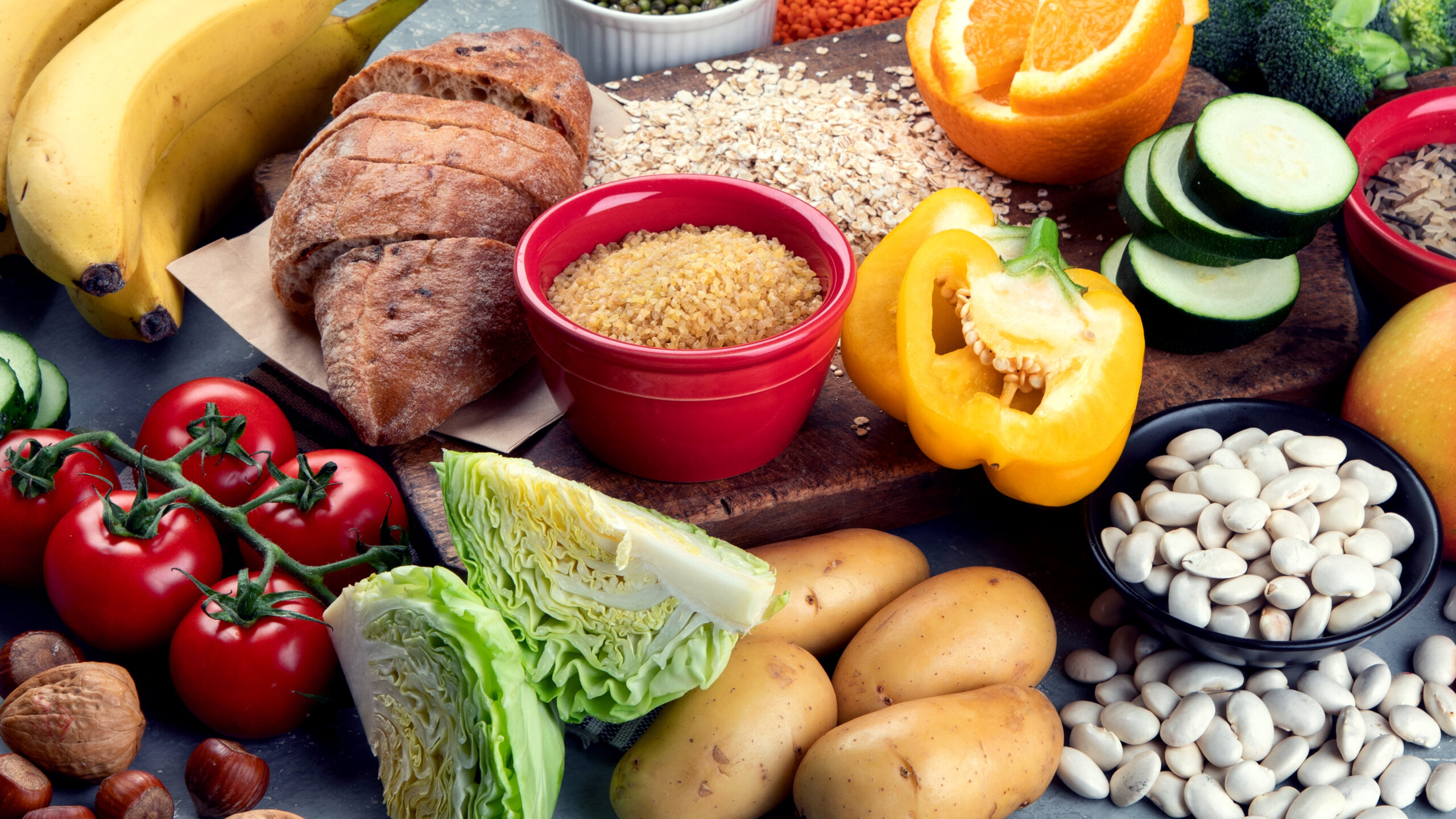
18 May Fueling for Performance: What to eat before, during and after a workout
Deanna Marie Scheid | Lead Exercise, Regional Health & Wellness Specialist (Retail Dietitian), SpartanNash
Pre-Exercise
What you put in your gut 24-48 hours before a workout can determine performance outcomes and how you feel during and after exercise. When thinking of what to eat before a workout there are a few things to thinking about. Type, timing and amount.
- Type: Carbohydrates are the preferred and most efficient fuel for physical activity. It is important to have rich carbohydrate meals and snacks throughout the day, not just the hour before leading up to physical activity. Since it takes around 24 hours to fully saturated glycogen stores having only a single high carbohydrate meal or snack won’t cut it. It’s more about what you eat throughout the day to allow your body to build up those precious glycogen reserves. In fact, research has shown skipping breakfast and not consuming adequate carbohydrates harms exercise performance and increases perception of effort making you feel you’re working harder than reality. In addition, consuming inadequate carbohydrates will force your body to start breaking down muscle for fuel. I don’t know about you, but that doesn’t sound too good…
- Top it off by having a snack 1 hour before. During exercise, blood flow is directed away from our stomach to deliver nutrients to working muscles. Having decreased blood available for digestion, it becomes harder to digest protein, fat and complex carbohydrates. One hour before exercise choose a simple and refined carbohydrate snack for a readily absorbable and quickly utilized energy source. Eating a high fat food, like peanut butter, will not be turned into energy as quickly as something like white toast with jelly, applesauce or granola and you may experience stomach cramps from the decreased ability to digest protein and fat around exercise. Eliminate foods during exercise that are not going to support your activity and fuel your body.
- Early morning workout? It matters what you eat the night before. Breakfast alone will not be enough to carry you through an hour-long workout, it’s going to be what you ate the night before. Choose a larger portion of carbohydrates in the evening and then top off energy stores in the morning.
During
- If activity is <60 minutes – try a “carbohydrate mouth rinse.” For activity less than 60 minutes a snack during is not needed. Instead, try a carbohydrate mouth rinse – take a sugar-based beverage like juice or Gatorade and swoosh it around in your mouth. This mouth rinse gives your central nervous system a “boost” and decreases the perception of fatigue while not needing to ingest a carbohydrate source.
- If activity is >75 minutes – pick a snack. Now is the time for a simple carbohydrate snack like Gatorade, gels, pretzels, fruit chews, goldfish, graham crackers or squeezable applesauce. Choosing a complex over simple carbohydrate will take too long to break down and won’t provide your body with the energy it needs now!
Post Exercise Meal
Focus on refueling with carbohydrates to replenish glycogen stores and rebuilding with protein to repair damaged muscles. Your brain also takes a lot of energy to function. If you don’t provide your body with carbohydrates, it may be harder to sustain mental focus for the rest of the day. Be sure to include fruits and vegetables to reduce free radical load and inflammation resulting from the workout. An intense bout of exercise leads to a temporary production of damage-causing free radicals which can impair training gains. Including fruits, vegetables, nuts, seeds and whole grains will offset the damage. However, it is possible to have too much of a good thing. Taking high levels of vitamin C and vitamin E in supplement form can impair adaptation and thus gains from the workout.
Nutrition doesn’t just make you good, it can make you great! Every meal is an opportunity for you to reach your goals and perform in the workplace, at the bike, in competition or on the run.
 Deanna is a Registered Dietitian dedicated to increasing consumption of healthy food products and promoting physical activity and overall wellbeing of the community. Deanna has 3.5 years of clinical dietetics experience, has developed a sports nutrition program at Central Michigan University and helped athletes and the community improve performance and wellbeing at various schools and sports performance clinics.
Deanna is a Registered Dietitian dedicated to increasing consumption of healthy food products and promoting physical activity and overall wellbeing of the community. Deanna has 3.5 years of clinical dietetics experience, has developed a sports nutrition program at Central Michigan University and helped athletes and the community improve performance and wellbeing at various schools and sports performance clinics.